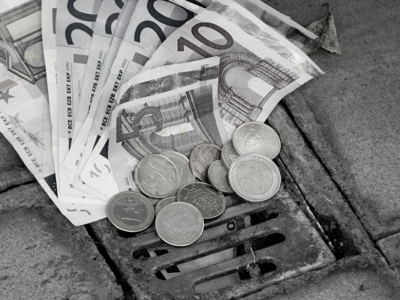Can the Tsai Administration’s Emphasis on Taiwan’s Soft Power Offer Lessons for Catalonia?

By Brian Hioe
16/04/2021
Under President Tsai Ing-wen, Taiwan’s successes in expanding its international space have been well-noted. In particular, with Taiwan having remained entirely lockdown-free during the COVID-19 pandemic, Taiwan has seen international accolades for its successful response to the pandemic.
Likewise, Tsai’s credentials as a progressive politician that enjoys the support of Taiwanese young people have been bolstered by Taiwan’s government legalization of gay marriage, the first in Asia to do so, and a historic apology on behalf of the state to Taiwanese Indigenous. These achievements, in carving out a progressive political path for Taiwan as distinguished from comparatively conservative neighbors, have further expanded Taiwan’s international reach.
However, in many ways, Tsai was aiming to distinguish her policies from her predecessor as Democratic People’s Party (DPP) president of Taiwan, Chen Shui-bian. Chen, who was president from 2000 to 2008, was the first non-Kuomintang (KMT) president throughout Taiwanese history. As known, the island has been ruled by the authoritarian KMT leaders during the decades-long martial law period.
A Gradualist Approach to Sovereignty Issues
Chen was perceived by the US as a radical, pro-independence politician, the US generally being thought of as Taiwan’s security guarantor from the threat of Chinese invasion. Suspicion that Tsai, as a DPP politician, would prove similar to Chen, led the US to sabotage Tsai’s 2012 presidential campaign with a phone call to the Financial Times expressing lack of faith in Tsai.
Tsai has explicitly attempted to avoid moves of Chen that were seen by the US and other regional actors as potentially threatening the status quo. Notably, Chen proposed holding a referendum on Taiwanese independence. Much as with Catalonia, human chains surrounding Taiwan were also used to demonstrate the will of Taiwanese for political independence, Catalonia and Taiwan alike taking inspiration from 1989 Baltic Way. Chen also sought to change the names of institutions of the Republic of China (ROC), the official name of Taiwan, and the name of the government that the KMT brought to the island after its defeat to the CCP in the Chinese Civil War and the proclamation of the People’s Republic of China (PRC).
Tsai has shrugged off opposition from within her own party to instead chart a much more moderate course. Tsai has explicitly hewed away from independence referendums, despite more conservative, older factions of her party clamoring for a new push toward such an end. While the legislature lowered benchmarks for holding national referendums under Tsai, these new legal changes would not allow for referendums on the constitution or Taiwan’s national status.
At the same time, Tsai refused to comply with Chinese demands to acknowledge territorial claims. Tsai has stood firm in the face of increasing Chinese threats, with Chinese incursions into airspace near Taiwan occurring on a near-daily basis now, refusing to acknowledge China’s “1992 Consensus” despite Chinese president Xi Jinping trumpeting the threat of military force against Taiwan in a 2019 speech if Taiwan continued to defy Chinese territorial claims.
Tsai’s approach, then, has been a gradualist one, in seeking to expand Taiwan’s international space over time by highlighting international bullying by China, while carefully avoiding the perception that she is disrupting the status quo. As a result, Tsai has successfully shifted international perceptions of Taiwan. Now, the PRC is the one perceived as the disruptor of the status quo, rather than Taiwan. Indeed, it helped to grow international awareness of the increasingly aggressive diplomatic actions by Beijing.
An Emphasis on Soft Power, Highlighting International Bullying by China
Instead of pushing for a risky independence referendum, something that China has stated it would militarily retaliate against, Tsai has leveraged on Taiwan’s soft power, while hoping to draw attention to Chinese actions against Taiwan, particularly regarding Taiwan’s exclusion from international organizations. For example, given its successes fighting COVID-19, Taiwan sent surplus medical supplies worldwide and suggested that it should be admitted to the World Health Organization (WHO) because it could share its know-how regarding why its COVID-19 response was so effective. This proved a particularly effective issue to focus on to draw international attention to Taiwan.
Taiwan is excluded from the WHO because of Chinese pressure, but the Tsai administration sought to highlight the arbitrary nature of Chinese bullying against Taiwan in international organizations–as well as how this can be detrimental to global health. To this extent, civil society groups in Taiwan coordinated with the government to raise international awareness of Taiwan’s exclusion from the WHO, as observed in a crowdfunded campaign to take out ads in international newspapers.
Another major initiative of the Tsai administration was the New Southbound Policy (NSP), aimed at establishing stronger political and economic ties with Southeast Asian countries in order to wean Taiwan off of over-dependence on China. The NSP built on earlier efforts to strengthen ties with Southeast Asian countries and was slow to see tangible results, but also strongly emphasized soft power, with a focus on building connections between Taiwanese NGOs and civil society organizations with their Southeast Asian counterparts, providing educational resources for Southeast Asian students, and training Taiwanese students in Southeast Asian languages.
Through such efforts, the Tsai administration sought to highlight Taiwan as differentiated from China by virtue of its pluralistic and multiethnic nature, at a time in which the Chinese party-state’s efforts at establishing monocultural hegemony made international headlines, as in the mass detention of Muslim-majority Uyghurs in Xinjiang for their religion. Apart from highlighting Taiwan’s increasingly diverse nature as a result of immigration from Southeast Asia – one in ten elementary or middle school students have a Southeast Asian parent – this is also why the Tsai administration sought to highlight Taiwan’s Indigenous roots.
Lessons for Catalonia?
Taiwan perhaps offers some lessons applicable for Catalonia, then, in terms of how to minimize backlash against efforts at achieving independence. It is key to note that Taiwan is already fully de facto independent from the country it is seeking to achieve independence from, having its own borders, economy, currency, army, and government. Taiwan lacks de jure independence, and it still faces the threat of Chinese invasion.
Independence referendums in Catalonia and protest actions such as the Catalan Way are aimed at showing that the popular will of Catalans is in favor of independence and that Catalonia should be self-governed according to universal principles of self-determination. That being said, Catalonia and Taiwan differ insofar as Taiwan’s push for independence is framed by its relation to the US, of which Taiwan is dependent on for security, and has historically backed Taipei against Beijing. This is also crucial in noting what lessons from Taiwan are applicable to Catalonia.
The Tsai administration was lucky in that it came into office at a time in which rising tensions between the US and China led to stronger support for Taiwan. But, as a result, some lessons from Taiwan may not be applicable to Catalonia. While an independence referendum would have been excessively provocative of both the US and China, perhaps resulting in military retaliation from the PRC and a loss of American support, it could still serve as a powerful show of the popular will in Catalonia.
Where the Tsai administration offers useful lessons for Catalonia may be with regards to its soft power. Against the authoritarian actions of the Chinese government, the Tsai administration was able to build diplomatic ties with neighboring countries conducted on different auspices than Chinese diplomacy, with a focus on people-to-people relations instead of the exercise of geopolitical state power. Moreover, the Tsai administration was able to differentiate itself from China by framing Taiwan as a more progressive, pluralistic, and diverse society than China under the authoritarian rule of the CCP, and in this way, highlight that China was the aggressor against Taiwan, rather than Taiwan being the provocateur in pushing for political independence.
This is perhaps where Catalonia could learn from Taiwan in pursuing strategies aimed at differentiating Catalan society from Spanish society. Catalonia could seek ways to point to the brutality and authoritarianism of Spanish police, and the arrests of Catalan political leaders as contrasted with the democratic ideals embraced by Catalan popularly elected democracy–and point to an essential difference in values from Spanish society. This could prove a strategy for winning the sympathy of international actors, a crucial precondition for any partially recognized territory to achieve full international recognition.
Brian Hioe is one of the founding editors of New Bloom. He is a freelance writer on social movements and politics, as well as a translator.
The opinions expressed in this publication are those of the authors. They do not purport to reflect the opinions or views of the CGI or its contributors. The designations employed in this publication and the presentation of material therein do not imply the expression of any opinion whatsoever on the part of the CGI concerning the legal status of any country, area or territory or of its authorities, or concerning the delimitation of its frontiers.


